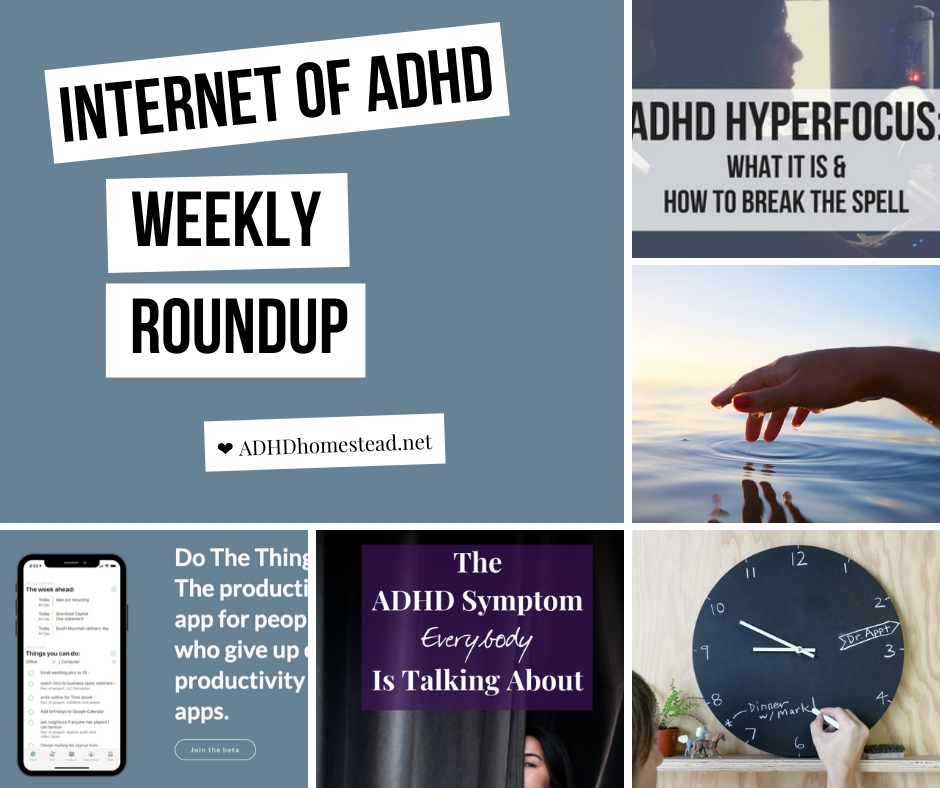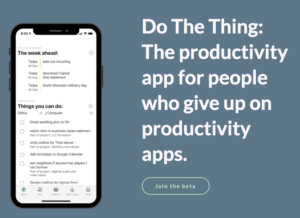What a week! I have shares about hyperfocus, time blindness, all the feels, and a new productivity app built by yours truly. Enjoy!
6 Grounding Techniques That Plug My Mind Back Into The Present
Black Girl, Lost Keys.
I’ve written posts about similar techniques I’ve developed by looking at my own personal experiences through the lens of research on how our brains work. Who knew it had a name? (I know: lots of other people. It’s a rhetorical question.) René speaks to people who suffer from PTSD and anxiety in her post, but her advice applies extremely well to ADHDers who get stuck in emotional hyperfocus.
It’s so easy to get wrapped up in an emotional state and become totally blind to any other feelings or situations. Sometimes we can view our ability to feel so deeply as an asset. However, we also need to remember this doesn’t always feel good for everyone. It’s not always appropriate or safe. It can hurt us and it can hurt others.
Also, sometimes it’s just too much! And it’s okay to feel like it’s too much. You don’t have to embrace the emotional roller coaster. And when it feels like too much, René’s grounding tips make a great addition to your toolbox.
The ADHD Symptom Everybody Is Talking About
Healthy ADHD
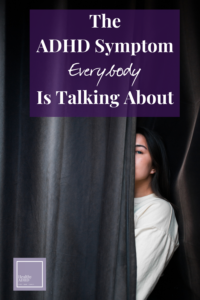
I like that Liz calls rejection sensitive dysphoria a side effect of ADHD here. It’s not its own pathology. It’s not an innate ~something~ we’re born with as a result of our unique brain chemistry.
In other words, RSD isn’t a diagnosis in the same way ADHD is.
That doesn’t make it not a thing.
Liz is right: there’s a reason everyone’s talking about it.
From a very early age, many ADHDers experience way more negative feedback and rejection than our peers. And because people ascribe a lot of ADHD symptoms to character traits, this rejection feels especially confusing and cruel. It comes from things we’re told we should be able to control and predict, but we can’t. For girls especially, social rejection can feel totally baffling. Our social life says something is wrong with us, but we don’t know what it is. We don’t understand what makes others’ friendships appear so effortless by comparison.
After a while, many of us learn to expect rejection — and to expect it somewhat randomly. This makes it very difficult to keep a healthy perspective on relationships. To take risks. To make ourselves vulnerable.
I don’t think it’s helpful for us to say we “have” RSD. I have ADHD, which I can treat but which I also need to accept and accommodate as a permanent factor in my life. I refuse to accept and accommodate unhealthy — dysphoric, according to the term itself — thought patterns around rejection. I may not be able to work on my ADHD itself, but I can work on unraveling its worst impacts on my relationships. And that should read as good news.
Chalkboard Clock
Instructables
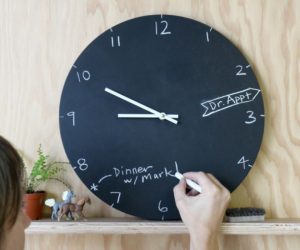
If you’ve met me in person, you know how much I value analog solutions. I love this idea and while I’m a brute and I’d probably bump the clock hands and break it by accident, it might be a super fun project for someone looking to use up spare parts from the workshop/basement. If anyone makes a riff on this writable clock I’d love to see it!
ADHD’s hyperfocus spell: what it is and how to break it
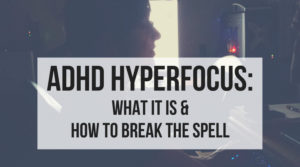
I’ve been thinking about hyperfocus a lot lately. Hyperfocus has always felt like quite the double-edged sword for our family. The ability to get so deeply in the zone for so long can feel like a strength — until you run up against external expectations.
Under stay-at-home orders, we have far fewer external expectations. That has meant fewer interruptions to hyperfocus.
My kid has embraced the new status quo. He’s engaged in a new obsession every week: first coding, then reading, then Lego. Normally he wouldn’t be able to spend six hours reading his favorite books in one day. Now he can. When his teacher assigned an online game for the class to practice reading, he did what I’m pretty sure was supposed to be a semester’s worth of work in a single week. He only stopped when he’d completed every available quest.
I (mostly) haven’t complained. For once, his difficulty with transitions and his tendency to hyperfocus are actually making my life easier. When your seven-year-old spends six hours reading quietly, you can get your own work done.
I worry about the transition back to school, whenever that happens. The structure of our quarantined days seems to suit my small ADHDer. I see now why he insisted I not enroll him in day camps this summer: he wants more of his own time.
For now, I’m going to continue doing an important piece of our therapy homework: practicing little interruptions. It’s supposed to be simple stuff, like asking for help with something that’ll only take a minute or asking for the answer to an easy math problem. The idea is to practice managing interruptions in low-impact situations. I’ll report back on how it goes, maybe in yet another hyperfocus post 😉
Do The Thing Public Beta
DoTheThing.app
Hey friends, guess what? I decided to shove my fledgling productivity app out of the nest and release it into public beta! Anyone with an iOS device (iPad, iPod Touch, iPhone) can now go to dothething.app and give it a spin.
Do The Thing displays your upcoming calendar events alongside a to-do list that filters tasks to only display what you can actually do right now. It’s made to show you only what’s useful and get out of your way.
I built this app to fill a need in my own life, but I have no illusions about being a statistical anomaly. I’m sure it will help someone else, too.
Please try it out and let me know what you think!
Hey there! Are you enjoying The ADHD Homestead?
Here's the thing: I don't like ads. I don't want to sell your attention to an advertising service run by the world's biggest data mining company. I also value my integrity and my readers' trust above all, which means I accept very few sponsorships/partnerships.
So I'm asking for your support directly. For the cost of one cup of coffee, you can help keep this site unbiased and ad-free.
Below you will find two buttons. The first lets you join our crew of Patreon pals and pledge monthly support for my work. Patrons also have access to my Audioblogs podcast. The second takes you to a simple donation page to pledge one-time or recurring support for The ADHD Homestead, no frills, no strings. Do whichever feels best for you!

